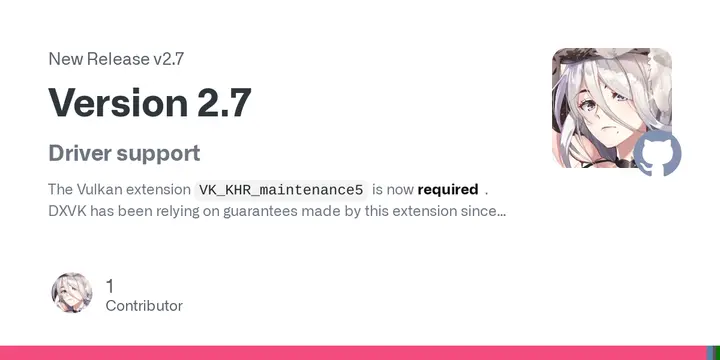One of the most notable updates is the comprehensive rewrite of descriptor management, leading to the adoption of the VK_EXT_descriptor_buffer as the default on newer AMD and Nvidia graphics cards. This change is designed to reduce CPU overhead and enhance performance in CPU-bound titles like *Final Fantasy XIV* and *God of War*. However, this feature remains disabled on older GPUs due to performance regressions.
Memory management has also seen improvements, with memory defragmentation enabled by default on Intel Battlemage and Lunar Lake GPUs. DXVK is now more efficient at enforcing the VRAM budget reported by drivers and reallocating unused resources to system memory during memory constraints. This change aims to provide better performance in VRAM-limited scenarios, particularly for Unity Engine games.
Legacy features have been removed to streamline maintenance, including the state cache and the d3d9.forceSwapchainMSAA option. Users are encouraged to utilize external tools like Gamescope for games lacking built-in MSAA options.
In addition to these core updates, DXVK 2.7 addresses various bugs and offers improvements, such as support for planar video output, optimization of D3D9 StretchRect, and fixes for several games including *LEGO City Undercover* and *Star Trek: Starfleet Command III*. The release notes also mention the removal of support for AVX builds due to toolchain limitations and other changes to improve compatibility and performance.
Overall, DXVK 2.7 represents a significant advancement in the Vulkan-based translation layer, aiming to enhance the gaming experience across a range of systems while phasing out obsolete features to focus on modern hardware support.
Future Directions
Looking ahead, DXVK's continuing evolution may involve further integration of Vulkan features that enhance graphics fidelity and performance. As game developers increasingly adopt Vulkan, DXVK could expand its support to include more advanced rendering techniques and optimizations. Additionally, ongoing improvements in compatibility with a wider range of GPUs will be essential, particularly as older hardware becomes less prevalent in the gaming community. Continued collaboration with both AMD and Nvidia could also lead to more robust driver support, ensuring that users have the best possible experience across various systemsDXVK 2.7 released
DXVK 2.7 has been released with a range of enhancements aimed at optimizing performance and ensuring better compatibility with games. The Vulkan extension VK_KHR_maintenance5 is now mandatory, and the fallbacks enabling older drivers to operate have been eliminated. The upcoming changes will predominantly impact Windows users utilizing AMD Polaris and Vega GPUs, for which AMD has officially ceased driver support. Descriptor management has undergone a comprehensive rewrite and modernization, with VK_EXT_descriptor_buffer now serving as the default on the latest AMD and Nvidia graphics cards. Memory defragmentation is now enabled by default on Intel Battlemage and Lunar Lake GPUs, whereas this feature remains disabled on older Intel GPUs. DXVK adheres to the VRAM budget reported by the driver and efficiently manages resources by dynamically relocating unused assets to system memory during periods of memory constraint.


